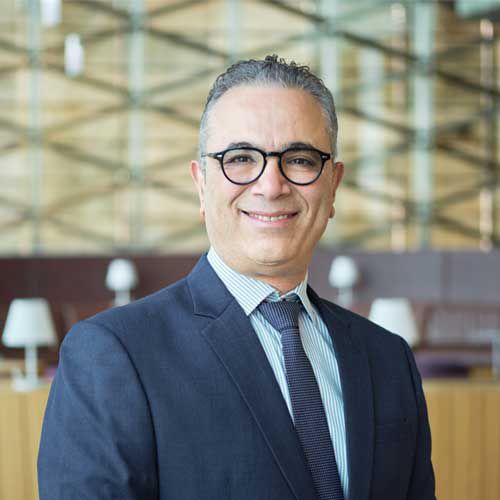RIYADH: Researchers led by experts at King Abdullah University of Science and Technology in Saudi Arabia have identified a gene in a native grain crop that could help to improve food security in the Kingdom and beyond.
The gene affects the level of resistance to a parasitic weed that is one of the major threats to this particular crop.
Salim Al-Babili, associate dean of biological and environmental science and engineering at the university and a professor of plant science, said: “By producing very high-quality genomes of pearl millet, we found a gene that contributes to the susceptibility of pearl millet to the root parasitic plant striga. Striga represents a major threat to global food security.”
Pearl millet, a common crop in Saudi Arabia and other places with a similar climate, can be vulnerable to striga hermonthica, also known as purple witchweed. The researchers found that pearl millet strains that lack the gene “CLAMT1b,” which is responsible for the synthesis of specific hormones, are more resistant to the weed than those in which the gene is present.
The finding is significant because it offers fresh insights into beneficial breeding methods for improved food security, the experts said.
“Pearl millet is a traditional crop in Saudi Arabia,” Al-Babili said. “It is a nutritious and healthy cereal, with pronounced resilience and tolerance for arid environments, making it a promising local crop for the Kingdom's food security.”

Salim Al-Babili, associate dean of biological and environmental science and engineering at the King Abdullah University of Science and Technology and a professor of plant science.
About 100 million people in Asia and Africa, particularly communities in harsh and dry climates, rely on pearl millet as part of their staple diet because of its high nutritional value. By selectively breeding strains that do not have the CLAMT1b gene, crops can be developed that better resist parasitic threats in Saudi Arabia and other arid regions.
“Our work will help in producing striga-resistant varieties that contribute to global food security,” Al-Babili added. “It also paves the way for improving this important crop and increasing its productivity, toward a wider utilization as a source for food and fodder in the Kingdom.”
This gene-targeted strategy aligns with global agricultural trends that focus on genetic improvements as part of the efforts to address challenges arising from climate change, and offer a potential model for improvements to other staple crops that are vulnerable to parasitic plants.
The researchers found that many varieties of pearl millet breeding stocks, including commercially available ones, contain the CLAMT1b gene. They also discovered that the presence or otherwise of the gene had no significant effect on the symbiotic relationship between pearl millet and arbuscular mycorrhizal, a fungus commonly found on the crop that has many benefits for the plant, including increased uptake of water and nutrients and improved disease resistance.
The researchers’ findings therefore suggest breeding strategies that remove the CLAMT1 gene could help protect the crop from parasitical plants without harming other ecological relationships that benefit its growth and survival.






























